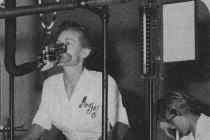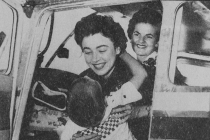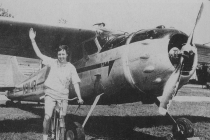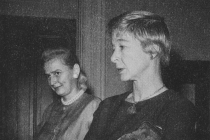The Mercury 13
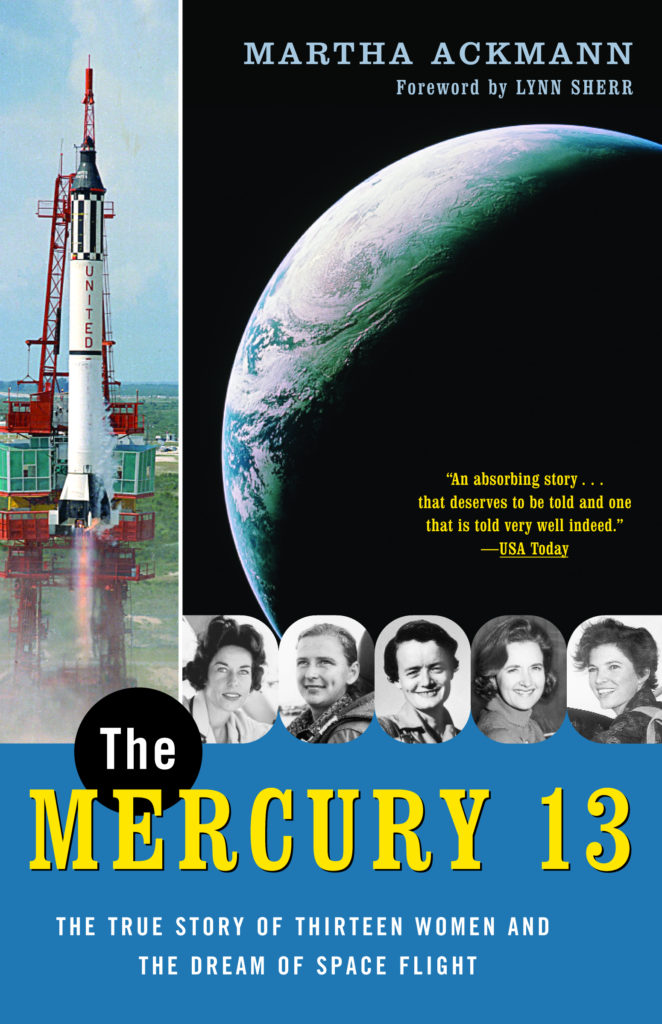 Title: The Mercury 13: The True Story of Thirteen Women and the Dream of Space Flight
Title: The Mercury 13: The True Story of Thirteen Women and the Dream of Space FlightPublished by: Random House
Genre: Nonfiction
ISBN13: 978-0375758935
Buy the Book: Amazon, Barnes & Noble, IndieBound, Odyssey Bookshop
Overview
In 1961, just as NASA launched its first man into space, a group of women underwent secret testing in the hopes of becoming America’s first female astronauts. They passed the same battery of tests as did the Mercury 7 astronauts, but they were summarily dismissed by the boys’ club at NASA and in the halls of Congress. The USSR sent its first woman into space in 1963; the United States did not follow suit for another twenty years.
The Mercury 13 tells the story of the dramatic events surrounding these thirteen remarkable women, all crackerjack pilots and patriots who sometimes sacrificed jobs and marriages for a chance to participate in America’s space race against the Soviet Union. In addition to talking extensively to these pioneers, Ackmann interviewed Chuck Yeager, John Glenn, Scott Carpenter, and others with first-hand knowledge of the program, and includes never-before-seen photographs of the Mercury 13 passing their tests at the legendary Lovelace Foundation in New Mexico.
Despite the crushing disappointment of watching their dreams derailed, the Mercury 13 went on to extraordinary achievement: Jerrie Cobb, who began flying when she was so small she had to sit on pillows to see out of the cockpit, dedicated her life to flying solo missionary flights to the Amazon rainforest; Wally Funk, who talked her way into the astronaut trials, went on to become one of the first female FAA investigators; Janey Hart, mother of nine and, at age forty, the oldest astronaut candidate, had the political savvy to steer the women through congressional hearings and later helped found the National Organization for Women.
A lasting tribute to these remarkable women, The Mercury 13 is an unforgettable story of determination, resilience, and inextinguishable hope.
Critical Acclaim
“An absorbing story…that deserves to be told and one that is told very well indeed.”
—USA Today“This is not just a book about the space program…. It is a metaphor for every occasion where women were denied an opportunity to pursue their dreams… For those who want to understand the barriers and persistence of an earlier generation [of women] who worked hard to make this all possible, I say, ‘read this book.’”
—Boston Globe“In dynamic prose, Ackmann… relates the story of thirteen female pilots who fought to become part of the nation’s space program at its inception. Their tale is uplifting, a narrative of their dedication… and sacrifice in an attempt to aid the nation in the space race against the Soviets and to experience the thrill of space flight… An utterly compelling book.”
—Publishers Weekly (starred review)“Impressive researched, vivid biographical details… and even-handed narration… Mercury 13 [is] an inspirational story of perseverance, courage, and ultimate triumph.
—Bookmarks
Interviews/Press Coverage
National Public Radio Interview
All Things Considered Commentary
Books in Three Bytes Interview
Gallery
The Story Behind The Mercury 13
A small newspaper article buried on page 19 of my local newspaper provided the spark for The Mercury 13: The True Story of Thirteen Women and the Dream of Space Flight.
The article described the upcoming 1998 return to space for veteran astronaut John Glenn and several paragraphs down, a single sentence caught my eye. “While John Glenn will be enjoying his second space flight,” the story read, “famed woman pilot, Jerrie Cobb, has been waiting since 1961 for her chance to orbit.”
Who’s Jerrie Cobb? I wondered. And why don’t I know anything about her?
Those two questions propelled me to research the fascinating and little known story of thirteen crackerjack pilots who hoped to become America’s first women in space.
The topic was already in my blood, having grown up during a time and in a place that was thoroughly immersed in the drama of the space race. In St. Louis during the 1960s, nearly every father on my block worked with McDonnell-Douglas Aircraft helping build the Mercury space capsule—the craft that would launch Alan Shepard, John Glenn and all of the other Mercury astronauts into outer space.
My own father had been in the Army Air Corps in World War II and a crew member on a B-26. Everyone in my family shared my dad’s love of flight; we spent many nights parked in our Chevrolet watching jets take off and land from the St. Louis airport. Later my father would be part of a team of cartographers that would help design maps for Apollo flights to the moon. Space and airplanes were as much a part of my St. Louis childhood as riverboats, ice cream and Cardinal baseball.
So with the page 19 newspaper article in-hand, I set out to find Jerrie Cobb and to recover the forgotten story of America’s women astronaut pioneers. What I discovered was a story far more dramatic and enduring than I ever could have imagined. Here’s the gist.
In 1961, just as NASA launched its first man into space, a group of thirteen extraordinary women pilots underwent secret astronaut testing. They passed the same battery of tests as did the famed Mercury 7 astronauts. But at the eleventh hour--just as the women were to begin the final phase of testing--NASA pulled the plug and abruptly stopped the secret project. Some said the women had scored too well on the grueling tests and posed a threat to the astronaut program. Others feared that if women were allowed to become astronauts, they might demand to do other jobs as well.
Even though NASA cancelled the program, the Mercury 13 women did not go quietly and instead took their case to Capitol Hill--even the White House. Yet no matter how passionate their plea, the response was the same: space is no place for a woman. The Soviets apparently didn’t agree. The USSR sent its first woman into space in 1963; the United States did not follow suit for another twenty years.
